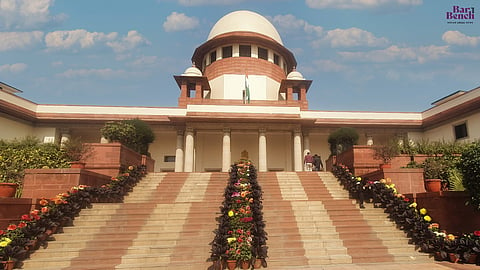
- Latest Legal News
- News
- Dealstreet
- Viewpoint
- Columns
- Interviews
- Law School
- Legal Jobs
- हिंदी
- ಕನ್ನಡ

The Supreme Court on Wednesday asked all High Courts to submit reports on the timelines of their judgments, including the dates when cases were reserved for verdict, when judgments were pronounced and when they were uploaded on to their respective websites [Pila Pahan @ Peela Pahan & Ors. vs. The State of Jharkhand & Anr.].